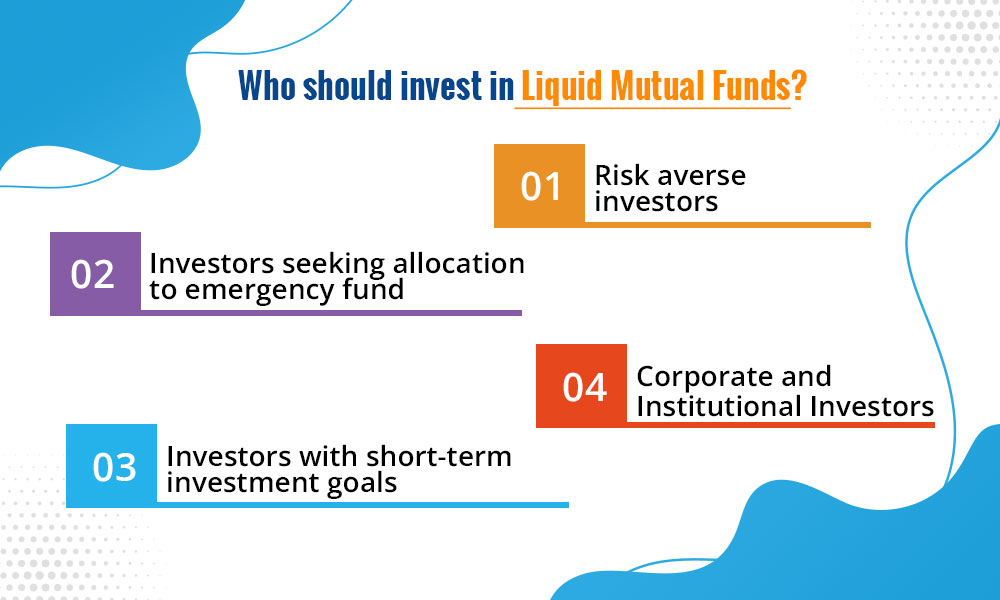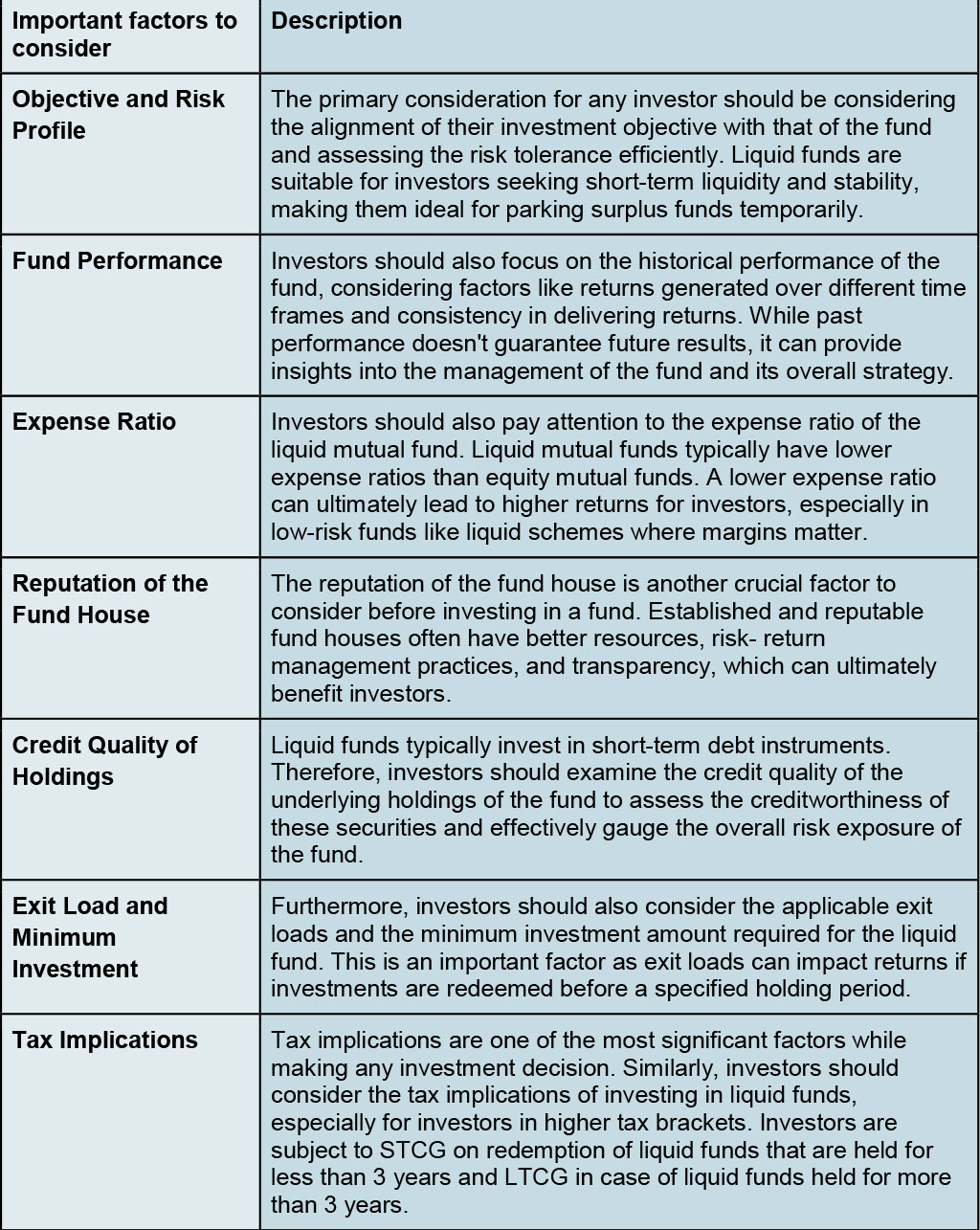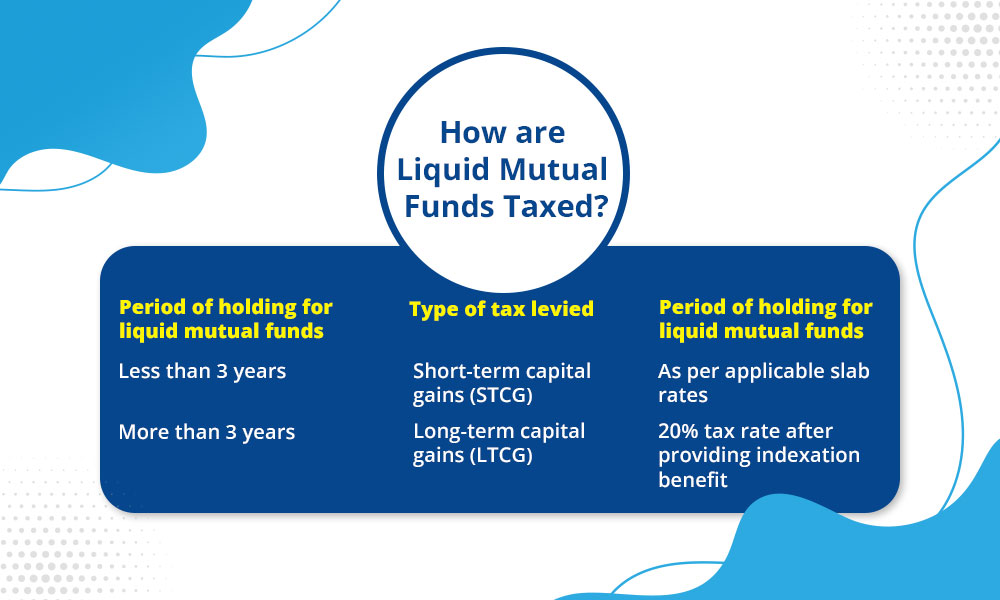.jpg)
It is a very well-known fact that mutual funds are considered to be among the staple investment options for a majority of investors today. Some investors still shy away from them owing to the lock-in period in some mutual funds or due to the stability issues. However, the beauty of mutual funds is that there is a suitable investment option for every class of investors. Liquid mutual funds are a promising answer to investors looking for stability and liquidity in mutual funds under one roof. So what are liquid mutual funds and how do they benefit investors? Get answers to these questions and more in this blog.
Read More: Index funds vs ETFs - How do you choose?
Liquid mutual funds belong to the debt mutual funds category and are classified under short-term funds. These funds invest in high-quality debt instruments like Treasury Bills (T-Bills), Commercial Papers (CP), and Certificates of Deposit (CD) and typically have a maturity between 1 day to 3 months. Liquid mutual funds provide a better investment option as compared to a standard savings account by providing slightly higher interest and considerably low to moderate risk. The fundamental characteristic of these funds is the low interest-rate risk as well as credit risk or default risk. These funds invest in liquid and low-risk securities thereby ensuring capital preservation while aiming to generate more or less stable and reasonable returns.

Liquid mutual funds are an excellent alternative to park investible funds rather than keeping them in a savings account. The target investors for liquid mutual funds are mentioned hereunder.
The fundamental concern for risk-averse investors is capital preservation in the face of constant market fluctuations and earning returns is secondary. Liquid mutual funds provide a well-suited investment option for such investors due to their low-risk nature as these funds primarily invest in short-term debt instruments with high credit ratings. This ensures stability for investors and minimises the risk of capital loss. Investment in liquid mutual funds provides risk-averse investors with an opportunity to earn slightly higher returns than traditional savings accounts or fixed deposits while maintaining liquidity and capital protection.
An emergency fund is a crucial component of financial planning as it provides a safety net during unforeseen circumstances such as job loss, medical emergencies, or unexpected expenses. Liquid mutual funds become a prudent choice for allocating funds to an emergency fund due to their key features like high liquidity, capital preservation and quick redemption process along with their ability to provide decent returns. Investors can easily access their funds within a few days without incurring penalties thereby making liquid mutual funds a reliable option for meeting urgent financial needs.
Most experts believe that a sign of a robust investment plan is allocating resources in alignment with the investment goals. This ensures optimum utilisation of funds while at the same time maximising the returns potential in an investment plan. Therefore, investors with short-term investment goals, such as saving for a vacation, funding an upcoming education expense, or planning a major purchase soon, can benefit from investing in liquid mutual funds. These funds offer stable returns over short investment horizons, typically ranging from a few days to a few months. The combination of liquidity, safety, and reasonable returns makes liquid funds suitable for achieving short-term financial objectives without exposing investors to significant market risks.
Another important category of suitable investors for liquid mutual funds are the corporates and institutional investors. Corporate entities, institutions, and treasuries often utilise liquid mutual funds to manage their surplus funds efficiently. Liquid funds provide a balance between safety, liquidity, and returns, making them ideal for short-term treasury management needs. Corporates can use these funds for payroll processing, vendor payments, managing working capital requirements, and parking temporary cash reserves, ensuring optimal cash flow management while earning reasonable returns on idle funds.
Some of the key factors to be considered while investing in liquid mutual funds are highlighted below.

Liquid funds belong to the debt mutual fund category and therefore, their taxation is in line with the taxation of debt mutual funds. Taxation of liquid mutual funds depends on two crucial factors namely, the period of holding and the applicable rate of taxation. The details of taxation on liquid mutual funds are explained below.

Liquid mutual funds are one of the most prominent categories of mutual funds and have recently seen huge inflows from retail as well as institutional investors. This increased popularity and investment in liquid mutual funds can be attributed to increased awareness among investors as well as ease of investment and redemption process due to the various technological advancements in the investment industry.
This article aims to provide basic information on liquid mutual funds and the fundamental factors influencing investment in these funds. Watch out this space for more information on various types of mutual funds and their nuances to help you gain a better understanding of these investment options.
Till then Happy Reading!
Read More: NSE Realtime Data Feed for Amibroker

Mutual fund investments have simplified greatly with just a tap on your smartpho...

Mutual fund investments have simplified greatly with just a tap on your smartpho...

Introduction For the longest time, investment in stock markets was thought to b...